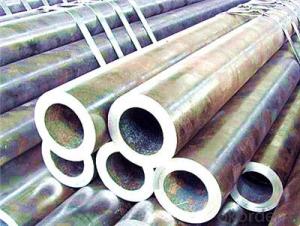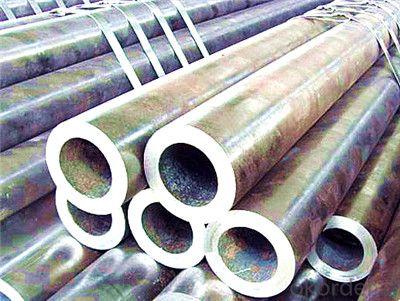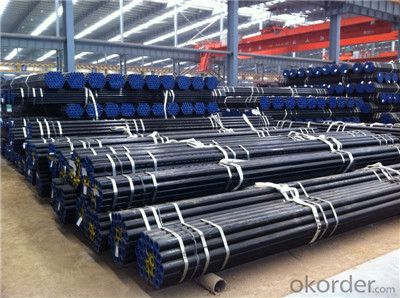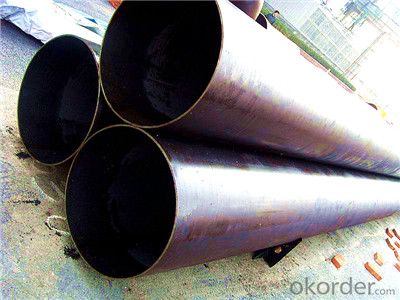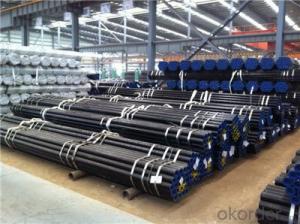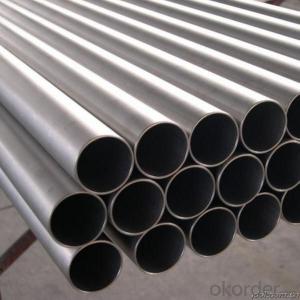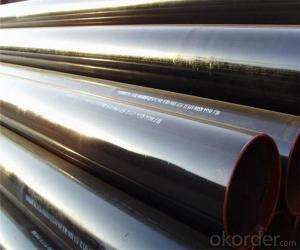CNBM Seamless Steel pipe with GR.B Made in China
- Loading Port:
- Tianjin
- Payment Terms:
- TT or LC
- Min Order Qty:
- 50 m.t.
- Supply Capability:
- 2000000 m.t./month
OKorder Service Pledge
OKorder Financial Service
You Might Also Like
PRODUCT DETAILS
1.Structure of CNBM Seamless Steel pipe with GR.B :
A large amount of Seamless Steel Seamless Steel Pipe DescriptionPipes is offered to the clients at cost effective rates. These pipes are extremely durable, resistant to corrosion and have high tensile strength. Our pipes are used in nuclear plants, power plants, refineries and construction industry across the country. Furthermore, we are capable of providing these seamless pipes to the clients in bulk quantity.
2.Main Features of CNBM Seamless Steel pipe with GR.B:
• High manufacturing accuracy
• High strength
• Small inertia resistance
• Strong heat dissipation ability
• Good visual effect
•Reasonable price
3.Packaging & Delivery:
| Packaging Details: | Seaworthy packages, bundles wrapped with strong steel strip |
| Delivery Detail: | 15-30 days after received 30% TT |
4.CNBM Seamless Steel pipe with GR.B Specification:
| Standard: | GB, DIN, ASTM,ASME, ASTM A106-2006, ASTM A53-2007 |
| Grade: | 10#,20#, 45#, 16Mn |
Thickness: | 8 - 33 mm |
| Section Shape: | Round |
| Outer Diameter: | 133 - 219 mm |
| Place of Origin: | Shandong, China (Mainland) |
| Secondary Or Not: | Non-secondary |
| Application: | Hydraulic Pipe |
| Technique: | Cold Drawn |
| Certification: | API |
| Surface Treatment: | factory state or painted black |
| Special Pipe: | API Pipe |
| Alloy Or Not: | Non-alloy |
| Length: | 5-12M |
| Outer Diameter: | 21.3-610mm |
5.Product pictures
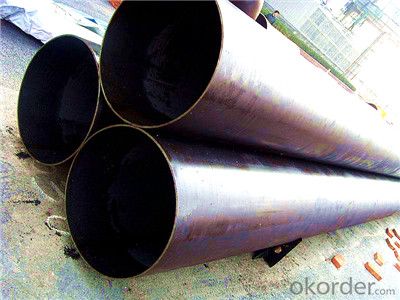
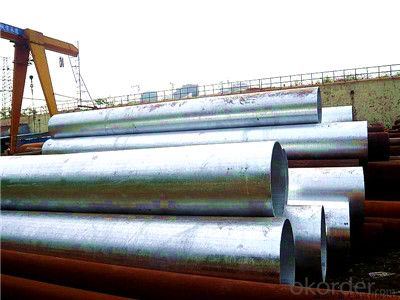
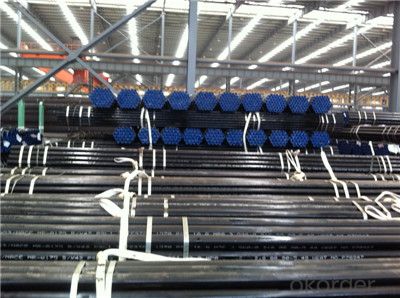
5.FAQ of CNBM Seamless Steel pipe with GR.B:
①How is the quality of your products?
Our products are manufactured strictly according to national and internaional standard, and we take a test
on every pipe before delivered out. If you want see our quality certifications and all kinds of testing report, please just ask us for it.
Guaranteed: If products’ quality don’t accord to discription as we give or the promise before you place order, we promise 100% refund.
②How about price?
Yes, we are factory and be able to give you lowest price below market one, and we have a policy that “ for saving time and absolutely honest business attitude, we quote as lowest as possible for any customer, and discount can be given according to quantity”,if you like bargain and factory price is not low enough as you think, just don’t waste your time.Please trust the quotation we would give you, it is professional one.
③Why should you chose us?
Chose happens because of quality, then price, We can give you both.Additionally, we can also offer professional products inquiry, products knowledge train(for agents), smooth goods delivery, exellent customer solution proposals.Our service formula: good quality+good price+good service=customer’s trust.
SGS test is available, customer inspection before shipping is welcome, third party inspection is no problem.
Any question, pls feel free to contact us !
- Q: How do you cut steel pipes?
- Steel pipes can be cut using various methods, such as using a hacksaw, a reciprocating saw with a metal-cutting blade, or a pipe cutter specifically designed for steel pipes. Additionally, plasma cutting or oxy-fuel cutting can be used for thicker pipes. The choice of cutting method depends on the pipe diameter, thickness, and the available tools or equipment.
- Q: What is the role of steel pipes in the food processing industry?
- Steel pipes play a crucial role in the food processing industry as they are used for various applications such as conveying fluids, gases, and other materials throughout the production process. These pipes are resistant to corrosion, have high strength, and can withstand extreme temperatures, making them ideal for transporting food products safely and hygienically. They are widely used for transporting water, steam, and other liquids, as well as for transferring ingredients, such as grains, oils, and sauces. Additionally, steel pipes are utilized in the construction of food processing equipment, such as mixers, blenders, and storage tanks, ensuring the durability and integrity of the entire production system.
- Q: What are the different types of steel pipe supports for thermal expansion?
- There are several different types of steel pipe supports that can be used for thermal expansion, including rigid supports, sliding supports, and spring supports. Rigid supports provide fixed support to the pipe and do not allow for any movement. Sliding supports allow the pipe to move horizontally as it expands or contracts, while still providing vertical support. Spring supports use springs to support the weight of the pipe and allow for vertical movement as well as thermal expansion.
- Q: Can steel pipes be used for oil and gas transportation?
- Yes, steel pipes can be used for oil and gas transportation. Steel pipes are widely utilized in the oil and gas industry due to their strength, durability, and ability to handle high-pressure conditions. They are commonly used for transporting crude oil, natural gas, and their derivatives over long distances. Steel pipes have excellent resistance to corrosion and can withstand extreme temperatures, making them suitable for both onshore and offshore applications. Additionally, steel pipes can be easily welded, allowing for the construction of complex pipeline networks that efficiently transport oil and gas from production fields to refineries and distribution centers.
- Q: How are steel pipes used in the renewable energy sector?
- Steel pipes are widely used in the renewable energy sector for various applications. They are commonly used for the construction of wind turbine towers, providing structural support and stability. Steel pipes are also used in the construction of solar power plants, where they are utilized for the installation of solar panels, mounting structures, and support systems. Additionally, steel pipes are employed in geothermal energy projects, helping to extract and transfer hot water or steam from underground reservoirs. Overall, steel pipes play a crucial role in the renewable energy sector by facilitating the efficient generation and transmission of clean energy.
- Q: The plastic pipe and steel pipe difference
- In fact, including the steel plastic pipe plastic pipe, but on the market all the steel plastic pipe and plastic lining steel pipe is synonymous, lined with plastic pipe is made of galvanized steel pipe internal set of plastic pipe manufacturing process, process using high pressure steam to both adhesion.
- Q: Is the steel frame on each floor supporting formwork (floor) called full scaffolding?
- The use of scaffold as its height, when the ceiling height below 3.6M, no matter what the ceiling decoration, decorative scaffolding are calculated
- Q: Can steel pipes be used for offshore oil and gas platforms?
- Yes, steel pipes are commonly used for offshore oil and gas platforms due to their high strength, durability, and resistance to corrosion in marine environments.
- Q: What are the different methods of joining steel pipes for oil and gas pipelines?
- There are several methods of joining steel pipes for oil and gas pipelines, including welding, threading, and flanging. Welding involves melting the edges of the pipes together to create a strong bond. Threading involves screwing the pipes together using a threaded connection. Flanging involves using a flange to connect the pipes, which is bolted together with a gasket in between for a secure seal. These methods are commonly used in the construction of oil and gas pipelines to ensure reliable and leak-free connections.
- Q: Can steel pipes be used for air conditioning systems?
- Yes, steel pipes can be used for air conditioning systems. Steel pipes are commonly used in HVAC systems, including air conditioning, due to their strength, durability, and resistance to corrosion. They are used to transport refrigerant and provide structural support for the system.
Send your message to us
CNBM Seamless Steel pipe with GR.B Made in China
- Loading Port:
- Tianjin
- Payment Terms:
- TT or LC
- Min Order Qty:
- 50 m.t.
- Supply Capability:
- 2000000 m.t./month
OKorder Service Pledge
OKorder Financial Service
Similar products
Hot products
Hot Searches
Related keywords
